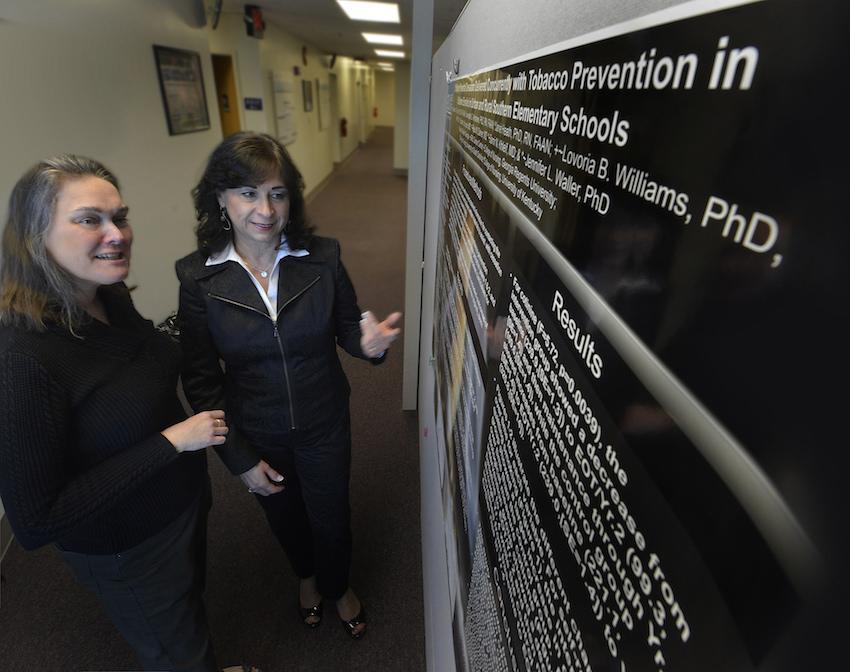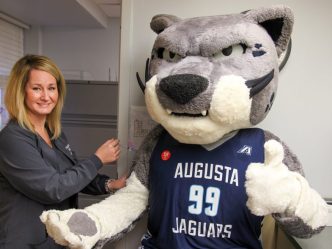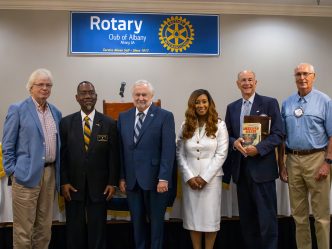It’s mission is to educate people about the risks of tobacco use, lung cancer and help them find a way to quit. And now, there’s a new leader in charge of the cancer Community Awareness Access Research and Education (c-CARE) at the Georgia Cancer Center. With new leadership comes new vision and added ideas to reach even more people.
“I have established four goals for the cancer Community Awareness Access Research and Education (c-CARE),” said Dr. Martha Tingen, the program’s new principal investigator. “The mission for all four of these goals is to assist people having a very challenging time quitting to show them there is hope.”
Tingen became the principal investigator for c-CARE after Dr. Lovoria Williams left Augusta University at the end of 2017 to take a new position.
The first goal centers on a partnership with the Augusta Housing Authority. An initiative by the U.S. Department of Housing and Urban Development (HUD) orders all public housing communities to have a smoke-free policy effective July 30, 2018. In Augusta, the c-CARE program and Augusta Housing Authority collaboratively informed all families of the change and the date it takes effect. According to Tingen, between 40 percent — 60 percent of people living in public housing in Augusta smoke. Nationwide, in the general population, the average is around 20 percent.
“We want to remove any barrier these people face,” Tingen said. “We partnered with the housing authority to make sure every person living in all 12 public housing communities can take part in the Tobacco Cessation Program at the Georgia Cancer Center.”
Those barriers could include transportation to and from the cancer center and being able to afford prescriptions and testing included in the program. According to Tingen, the c-CARE program can cover those kinds of cost.
The program includes medications to help with the physiological addiction to smoking, as well as behavioral skills counseling to deal with the psychological addiction and dependency.
“If they can’t get to the Georgia Cancer Center, we can even take the program to their neighborhood and hold education and counseling sessions where these people live,” Tingen said.
When it comes to the second goal, Tingen works with Dr. Carsten Schroeder, thoracic surgical oncologist at the cancer center, to get people a free screening to detect lung cancer.
“Through c-CARE we are able to provide people who meet established eligibility requirements with low-dose CT scans to see if they have early stage lung cancer nodules,” Tingen said.
If they do, Schroeder is able to go in and remove the nodule before it may cause serious problems for the patient.
Patients do need an order from a doctor to get the free screening. But, if these people don’t have a primary care physician, Tingen and her team can set them up with one at an area community medical clinic or one of the federally-qualified medical clinics (FQMCs) they have partnered with for c-CARE.
“Together, the Tobacco Cessation Program and lung cancer screening program really are the gift of life,” Tingen said.
The National Cancer Institute, the foremost authority on cancer, reports that cancers associated with tobacco use comprise 40 percent of all cancer diagnoses in the United States.
The third goal for Tingen and her team involves going back to the beginning of the c-CARE program to identify patients who may have not followed through for receiving the best care that they could have received.
“We are looking at four different categories of people,” she said. “We are going to bring each group together for a listening session to find out what caused them not to follow-up.”
These focus groups will allow the team to fully identify the barriers experienced by the patients who didn’t participate and what it will take to get them to follow through in the future.
The final goal Tingen has assigned to the program involves collecting data that will help evaluate the effectiveness of the program.
With the grant funding for the c-CARE program set to expire Dec. 31, 2018, Tingen said she’s looking at writing a new grant that could extend the program to rural areas outside the Augusta-Richmond County border.
 Augusta University
Augusta University




